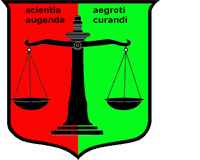Institute for Response-Genetics (e.V.)Chairman: Prof. Dr. Hans H. StassenPsychiatric Hospital (KPPP), University of Zurich |

|


|
Therapeutic Effects of AntidepressantsOver the past three decades, the therapeutic effect of various types of antidepressants has been successfully conceptualized based on monoaminergic system modifications. Although achieved via different mechanisms, all these modifications enhance the neurotransmitter signal transfer, which suggests that an inadequately low concentration of biogenic amines at synapses and in neurons, for whatever reason, predisposes or causes depression. Delayed Onset-of-Action HypothesisAttempts have therefore been made to incorporate the delayed onset into the biogenic amine approach to depression, for example, in the form of a postulated imbalance of neuronal second messenger function. Such attempts, however, failed to support a general delayed onset-of-action for antidepressants. Time Characteristics of ImprovementOur results –replicated for several different antidepressant drug classes in comparison to placebo– demonstrated that the onset of improvement occurred in more than 70% of the patients within the first 2 weeks of treatment. Antidepressants that differed greatly in their biochemical and pharmacological actions had a similar efficacy in terms of the proportion of patients in whom they induced a therapeutic response. Differences in efficacy between active drugs and placebo were reflected only by the total number of improvers, responders and premature withdrawals –but not by the time characteristics of improvement. Specifically, our studies of 2'788 patients yielded no indication for a delayed onset of action of antidepressants.
References
Stassen HH, Bachmann S, Bridler R, Cattapan K, Seifritz E. Polypharmacy in Psychiatry and
Weight Gain: Longitudinal Study of 832 Patients Hospitalized for Depression or Schizophrenia,
along with Data of 3,180 Students from Europe, the U.S., South America, and China.
Eur Arch Psychiatry Clin Neurosci. 2024; https://doi.org/10.1007/s00406-024-01767-2
(Epub ahead of print)
[get the article]
Stassen HH, Bachmann S, Bridler R, Cattapan K, Hartmann AM, Rujescu D, Seifritz E, Weisbrod M,
Scharfetter C: Genetic Determinants of Antidepressant and Antipsychotic Drug Response:
A molecular-genetic study of 902 patients over 6 weeks. Psychiatry Res. 2024 [submitted for publication]
Stassen HH, Bachmann S, Bridler R, Cattapan K, Hartmann AM, Rujescu D, Seifritz E, Weisbrod M,
Scharfetter C. Analysis of genetic diversity in patients with major psychiatric disorders
versus healthy controls: A molecular-genetic study of 1698 subjects genotyped for 100 candidate
genes (549 SNPs). Psychiatry Res. 2024; 333: 115720. doi: 10.1016/j.psychres.2024.115720
[get the article]
Greil W, de Bardeci M, Müller-Oerlinghausen B, Nievergelt N, Stassen HH, Hasler G, Erfurth A,
Cattapan K, Rüther E, Seifert J, Toto S, Bleich S, Schoretsanitis G. Controversies regarding
lithium-associated weight gain: case-control study of real-world drug safety data.
Int J Bipolar Disord. 2023; 11(1): 34. doi: 10.1186/s40345-023-00313-8
[get the article]
de Bardeci M, Greil W, Stassen H, Willms J, Köberle U, Bridler R, Hasler G, Kasper S, Rüther E,
Bleich S, Toto S, Grohmann R, Seifert J. Dear Doctor Letters regarding citalopram and escitalopram:
guidelines vs real-world data. Eur Arch Psychiatry Clin Neurosci. 2023; 273(1): 65-74
[get the article]
Stassen HH, Bachmann S, Bridler R, Cattapan K, Herzig D, Schneeberger A, Seifritz E:
Detailing the Effects of Polypharmacy in Psychiatry: Longitudinal Study of 320 Patients
Hospitalized for Depression or Schizophrenia. Eur Arch Psychiatry Clin Neurosci. 2022;
272(4): 603-619
[get the article]
Moragrega I, Bridler R, Mohr C, Possenti M, Rochat D, Sanchez Parramon J, Stassen HH:
Monitoring Mental Health and the Effects of Therapeutic Interventions through Self-Assessment
Voice Analyses. Res Psychother. 2021, 24(3): 250-262
[get the article]
Greil W, de Bardeci M, Seifert J, Bernegger X, Cattapan K, Stassen HH, Wagner AL, Sieberer M,
Grohmann R, Toto S: Treatment of depression: Are psychotropic drugs appropriately dosed in women
and in the elderly? Dosages of psychotropic drugs by sex and age in routine clinical practice.
Hum Psychopharmacol. 2022; 37(1): e2809
[get the article]
Stassen HH, Bachmann S, Bridler R, Cattapan K, Herzig D, Schneeberger A, Seifritz E:
Inflammatory Processes linked to Major Depression & Schizophrenic Disorders and the Effects
of Polypharmacy in Psychiatry: Evidence from a longitudinal Study of 279 Patients under
Therapy. Eur Arch Psychiatry Clin Neurosci. 2021; 271(3): 507-520
[get the article]
Pollak TA, Lennox B, Müller S, Benros ME, Prüss H, Tebartz van Elst L, Klein H, Steiner J,
Frodl T, Bogerts B, Tian L, Groc L, Hasan A, Baune BT, Endres D, Haroon E, Yolken R,
Benedetti F, Halaris A, Meyer J, Stassen HH, Leboyer M, Fuchs D, Otto M, Brown DA, Vincent A,
Najjar S, Bechter K: An international consensus on an approach to the diagnosis and
management of psychosis of suspected autoimmune origin: the concept of autoimmune psychosis.
Lancet Psychiatry 2020; 7(1): 93-108
Zhang M, Bridler R, Mohr C, Moragrega I, Sun N, Xu Z, Yang Z, Possenti M, Stassen HH:
Early Detection of the Risk of Developing Psychiatric Disorders: A Study of 461 Chinese University
Students under Chronic Stress. Psychopathology 2019; 52(6): 367-377
[get the article]
Bhake R, Kluckner V, Stassen HH, Russell GM, Leendertz J, Stevens K, Linthorst ACE, Lightman S:
Continuous Free Cortisol Profiles – Circadian Rhythms in Healthy Men. J Clinical Endocrinology &
Metabolism 2019; 104(12): 5935-5947
Greil W, Zhang X, Stassen HH, Grohmann R, Bridler R, Hasler G, Toto S, Bleich S, Kasper S:
Cutaneous adverse drug reactions to psychotropic drugs and their risk factors - a case-control study.
Eur Neuropsychopharmacol. 2019; 29(1): 111-121
[get the article]
Stassen HH: Heterogeneity of schizophrenic disorders and link to chronically elevated IgM values.
Neurology, psychiatry and brain research 2018; 29: 23-24
Braun S, Bridler R, Müller N, Schwarz MJ, Seifritz E, Weisbrod M, Zgraggen A, Stassen HH:
Inflammatory Processes and Schizophrenia: Two Independent Lines of Evidence from a Study of Twins
Discordant and Concordant for Schizophrenic Disorders. Eur Arch Psychiatry Clin Neurosci 2017; 267: 377-389
[get the article]
Stassen HH, Braun S, Bridler R, Seifritz E, Weisbrod M: Inflammatory Processes and
Schizophrenia: Evidence from a Twin Study. Eur Neuropsychopharmacology 2017; 27 Suppl 4: S934-S935
Schnipper N, Hoffmann K, Kallinich T, Sperling K, Stassen HH: Image analysis of neutrophil nuclear
morphology: Learning about phenotypic range and its reliable analysis from patients with
Pelger-Huët-Anomaly and treated with Colchicine. Cytometry B Clin Cytom. 2017; 92(6): 541-549
Braun S, Bridler R, Müller N, Schwarz MJ, Seifritz E, Weisbrod M, Zgraggen A, Stassen HH:
Inflammatory Processes and Schizophrenia: Two Independent Lines of Evidence From a Study of Twins
Discordant and Concordant for Schizophrenic Disorders. Neuropsychopharmacology 2016; 41: S414–S415
Delfino JP, Barragán E, Botella C, Braun S, Camussi E, Chafrat V, Mohr C, Bridler R, Lott P,
Moragrega I, Papagno C, Sanchez S, Soler C, Seifritz E, Stassen HH: Quantifying Insufficient
Coping Behavior under Chronic Stress. A cross-cultural study of 1,303 students from Italy,
Spain, and Argentina. Psychopathology 2015; 48: 230-239
Stassen HH, Delfino JP, Kluckner VJ, Lott P, Mohr C: Vulnerabilität und psychische Erkrankung.
Swiss Archives of Neurology and Psychiatry 2014; 165(5): 152-157
Mohr C, Braun S, Bridler R, Chmetz F, Delfino JP, Kluckner VJ, Lott P, Schrag Y, Seifritz E, Stassen HH:
Insufficient Coping Behavior under Chronic Stress and Vulnerability to Psychiatric Disorders.
Psychopathology 2014; 47: 235-243
Giegling I, Balzarro B, Porcelli S, Schäfer M, Hartmann AM, Friedl M, Konte B, Krämer P, Möller HJ,
De Ronchi D, Stassen HH, Serretti A, Rujescu D: Influence of ANKK1 and DRD2 polymorphisms in response
to haloperidol. Eur Arch Psychiatry Clin Neurosci. 2013; 263(1): 65-74
Stassen HH, Anghelescu IG, Angst J, Böker H, Lötscher K, Rujescu D, Szegedi A, Scharfetter C:
Predicting Response to Psychopharmacological Treatment. Survey of Recent Results.
Pharmacopsychiatry 2011; 44: 263-272
Kemp DE, Ganocy SJ, Brecher M, Carlson BX, Edwards S, Eudicone JM, Evoniuk G, Jansen W, Leon AC,
Minkwitz M, Pikalov A, Stassen HH, Szegedi A, Tohen M, Van Willigenburg AP, Calabrese JR: Clinical value
of early partial symptomatic improvement in the prediction of response and remission during short-term
treatment trials in 3369 subjects with bipolar I or II depression. J Affect Disord. 2011; 130(1-2): 171-179
Lötscher K, Anghelescu IG, Braun S, Bridler R, Stassen HH: Polypharmacy in psychiatry: clinical practice
versus empirical evidence. Eur Neuropsychopharmacol. 2010; 20 (Suppl. 3): 378-379
Szegedi A, Jansen WT, Van Willigenburg AP, Van der Meulen E, Stassen HH, Thase ME: Early
improvement as a predictor of treatment outcome in patients with major depressive disorder:
Why the first 2 weeks really matter –evidence from 6562 patients. J Clin Psychiatry 2009; 70(3): 344-353
Stassen HH, Angst J, Hell D, Scharfetter C, Szegedi A: Is there a common resilience mechanism
underlying antidepressant drug response? Evidence from 2848 patients. J Clin Psychiatry 2007;
68(8): 1195-1205
Stassen HH, Scharfetter C: Vulnerability, resilience and response to psychotropic drugs:
shared genetic factors? Am J Med Genetics 2006; 141: 707-708
Lavergne F, Berlin I, Gamma A, Stassen H, Angst J: Onset of improvement and response to
mirtazapine in depression: a multicenter naturalistic study of 4771 patients. Neuropsychiatric
Disease and Treatment 2005; 1(1): 59-68
Stassen HH, Angst J, Scharfetter C, Szegedi A: Therapie mit Antidepressiva: Erfolg von
genetischen Faktoren abhängig? Leading Opinions, Neurologie & Psychiatrie 2005; 6: 25-27
Stassen HH, Angst J: Wirkung und Wirkungseintritt in der Antidepressiva-Behandlung.
Medizinspektrum 2004; 15: 15-17
Stassen HH, Dahmen N, Hell D, Nürnberg P, Sander T, Toliat MR, Szegedi A: Genetic predisposition
of antidepressant drug response. Am J Med Genetics 2003; 122: 123-124
Montgomery SA, Bech P, Blier P, Moller HJ, Nierenberg AA, Pinder RM, Quitkin FM, Reimitz PE,
Rosenbaum JF, Rush AJ, Stassen HH, Thase ME: Selecting methodologies for the evaluation of
differences in time to response between antidepressants. J Clin Psychiatry 2002; 63(8):
694-699
Stassen HH, Angst J, Delini-Stula A: Fluoxetine versus moclobemide: cross-comparison between the
time course of improvement. Pharmacopsychiatry 1999; 32: 56-60
Stassen HH, Kuny S, Hell D: The speech analysis approach to determining onset of improvement
under antidepressants. Eur Neuropsychopharmacology 1998; 8,4: 303-310
Stassen HH, Angst J, Delini-Stula A: Onset of improvement under fluoxetine and moclobemide.
Eur Psychiatry 1998; 13,3: 128-133
Angst J, Stassen HH: Methodische Probleme der Prüfung von Antidepressiva. In: Stieglitz RD,
Fähndrich E, Möller HJ (eds): Syndromale Diagnostik psychischer Störungen. Hogrefe, Göttingen
1998: 5-12
Stassen HH, Angst J, Delini-Stula A: Delayed onset of action of antidepressant drugs? Survey
of results of Zurich meta-analyses. Eur Psychiatry 1997; 12: 166-176
Kuny S, Stassen HH: Cognitive performance in patients recovering from depression. Psychopathology
1995; 28: 190-207
Stassen HH, Angst J: Methods of estimating onset of improvement. Eur Neuropsychopharmacology
1994; 4,3: 284-285
Stassen HH, Angst J, Delini-Stula A: Severity at baseline and onset of improvement in depression.
Meta-analysis of Imipramine and Moclobemide vs Placebo. Eur Psychiatry 1994; 9: 129-136
Stassen HH, Delini-Stula A, Angst J: Time course of improvement under antidepressant treatment:
a survival-analytical approach. Eur Neuropsychopharmacol 1993; 3: 127-135
Angst J, Delini-Stula A, Stabl M, Stassen HH: Is a cutoff score a suitable measure of
treatment outcome in short-term trials in depression? A methodological meta-analysis.
Human Psychopharmacology 1993; 8: 311-317
Angst J, Stassen HH, Woggon B: Effect of neuroleptics on positive and negative symptoms and
the deficit state. Psychopharmacology 1989; 99: 41-46
|
|

Under antidepressants one typically finds 35-40% of patients to be in fact placebo responders; an additional 40% display either no or incomplete improvement, so that no more than 20% of the patients benefit from drug treatment.
Please note: (1) patients showing early improvement
are at least 3 times more likely to become responders compared to patients with a late onset; (2) the
probability to become a treatment responder drops below 15% if there are no signs of improvement
during the first 2 weeks of treatment.
|
|
| [ Mail to Webmaster ] k454910@ifrg.ch |